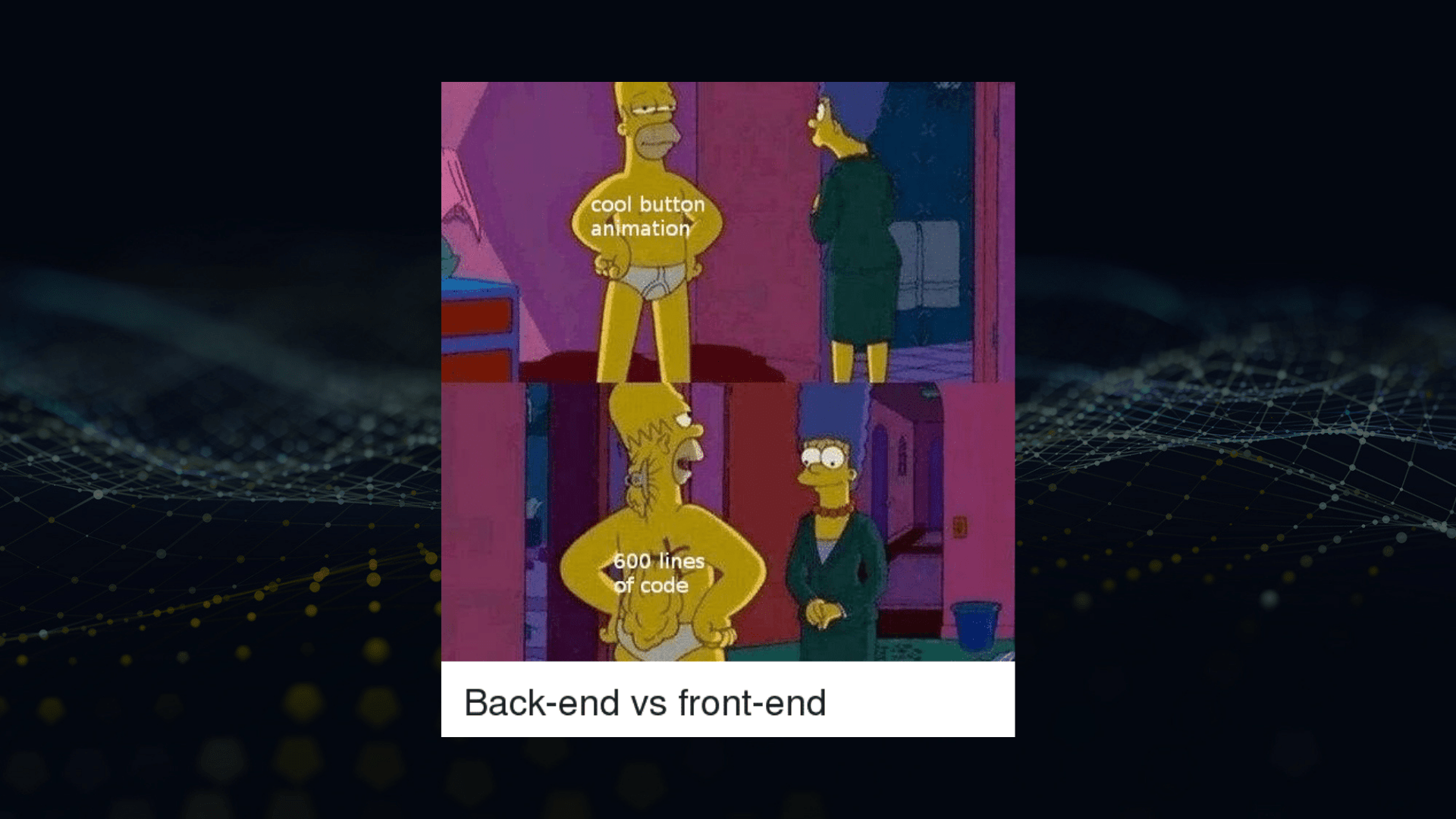What do these people actually do? 17 IT function titles explained
on 9 February 2021 for GraduatesWe get it, the spectrum of IT jobs is a broad one and navigating through this sea of function titles isn’t always easy. And this is not only the case for recent graduates, because everything evolves exponentially, even experienced tech professionals can find themselves frowning when they see a rather new IT function title pop up on LinkedIn.
So, if you’re nearing your graduation and still aren’t sure of which direction you want to head in or you just want to freshen up your knowledge on IT function titles or maybe you already work in IT and are looking for a simple way to explain your grandmother what you actually do for a living, this list will definitely help you out!
We also included some links to more in-depth stories of Exellysts who actually work in these fields, so don’t hesitate to start exploring!
Business Analyst
Business Analysts (like Hendrik) understand the changing needs of the company and have a strong understanding of modern technology tools. They translate the company needs into business requirements that state what new features or applications are wanted. Together with the Functional Analysts they are the link between the business and the IT departments.
Functional Analyst
These people are experts in their respective fields, they know and understand the product and/or the IT infrastructure of the company. Next to that functional analysts (like Katrien & Giani-Luigi) also have an understanding of business and the market. With this knowledge the Functional Analyst turns the business requirements into functional requirements, which are more precise and take into consideration the software and/or IT-infrastructure. They often also write test scenario’s and work closely with the development teams.
Testing Engineer
A test engineer will –as the title suggest- test the software of the IT-infrastructure. They make sure that the software adheres to the business- or functional requirements and that there is enough testing coverage to ensure these requirements. They often serve as a liaison between the development teams, design and marketing.
IT Consultant
This is a skilled individual in a certain field of IT. An IT consultant (like Rutger & Michiel) will be hired by a company to work on an IT project for a certain period of time (from a couple of weeks to several years). This can be rather vague as what type of project and the duration is different from customer to customer as well as the consultancy company. Often will the consultant specialize in a certain technology or subfield of IT, like a java-consultant or someone who is skilled in working with cloud services for example.
System Analyst / Architect
System Analysts and Architects define the architecture of the IT system in such a way that it fulfills the predefined requirements. In order to do so, they need to have a broad knowledge of a multitude of IT services, so they understand all different aspects of the system. The System Architect breaks the system down into components, interfaces and interactions between these components.
Database Administrator
These IT professionals design, maintain and develop the company databases. These databases are used store important information like, confidential financial numbers, payroll data, customer data, etc. A database administrator is required to understand database management and development. Also, the security aspect of these databases is becoming more of a concern in our ever-increasing connected world.
Data Analyst
A Data Analyst is the person responsible for querying and processing a company’s data. They also provide reposts and summarize and visualize data. Although they’re mostly not expected to develop new algorithms or to analyze big data, people across the organization often rely on them for ad-hoc charts, reports and a better understanding of certain queries. These people are often wizards when it comes to SPSS, SAS, SQL and Microsoft Excel and Access.
Data Scientist
Data Scientists turn raw data into valuable insights. They use statistics, machine learning and an array of other analytic approaches to solve specific problems their organization is facing. In contrary to Data Analysts, Data Scientists are expected to develop new algorithms and to handle big data, that’s why they’re usually way more skilled in Python, R and Hadoop, just to name a few.
Data Engineer
It’s the Data Engineer’s job to prepare a data infrastructure that can then be analyzed by Data Analysts and Scientists. A Data Engineer is a sort of Software Engineer who designs, builds and integrates data from various sources to create a clear and accessible overview. As they often focus more on architecture and design, they are typically less skilled when it comes to machine learning or data analytics.
Product Owner
This is a position from the Scrum framework, an agile framework that aims to provide an alternative way –in contrast to the waterfall model- to develop software. A Product Owner (like Maxim) is responsible for the viability of the finished product. By representing the product’s stakeholder and being the voice of the customer or end user, the product owner ensures that the entire team brings value to the business.
Team Lead
As the name suggests this person will lead a (development) team. Team Leads (like Jochen) generally work alongside their team members but they carry the responsibility to let the development team work as optimally as possible. They are natural leaders but also have a strong IT knowledge.
Security Analyst
The Security Analyst plays a vital role in keeping a company’s proprietary and sensitive information secure. This individual has a very good knowledge of the newest security breaches and is continuously searching for new information on potential breaches, all to ensure the security of the company’s and its customers’ data.
Network Architect
Network Architects design data communication networks such as local and wide area networks (LANs & WANs), that enable the organization’s IT infrastructure to communicate. This function title is often confused with Network Administrators, but these are the people that manage the support of these networks whereas a Network Architect is responsible of for the planning and designing of the computer network although these roles can sometimes overlap in smaller organizations.
Front-end Developer
A Front-end Developer (like Steven) is someone who develops the user interface of a piece of software (the part the end user is seeing and interacting with). They are proficient in using front-end frameworks suck as Angular, React.js, jQuery, etc. A smooth user experience is their holy grail, that’s why they often work closely together with UX/UI Designers.
Back-end Developer
A Back-end Developer is someone who develops the server-side of the software. These people are proficient in using server-side languages and frameworks such as Django and Ruby on Rails. Back-end Developers generally focus on the architecture of a certain website or app, scripting and databases.

Full Stack Developer
A Full Stack Developer (like Mara) is someone who works on both the client-side and server-side of software, so it’s a combination of both a Back-end and Front-end Developer. The biggest advantage of a full stack developer is that he/she looks at the system as a whole and easily understands how the client- and server-sides are communicating with each other.
Software Developer
A Software Developer (like Ashkan) is – plot twist – anyone who develops software. This includes a very broad range of job opportunities, from front-end developers to database administrators.
Great, now what?
We hope this list made some of these IT function titles a bit clearer. And now you know what every function title entails, why don’t you check out our job page?
About Exellys
Exellys is a Tech Talent Incubator. We match ambitious companies with the finest tech talent. Are you ready to drive the innovations of tomorrow? Ready to make an impact and become a future-fit digital leader?
Whether you are a graduate or (young) professional, Exellys will unlock your full potential by guiding you to a challenging work environment that perfectly matches your personality, expectations and ambitions.
On top of that, you are enrolled in one of our very own training and coaching programs (based on your personal and professional ambition and experience). This means that, while working as an Exellys consultant, we are helping you to bridge your ambition to excellence.
Through intensive training and coaching, you’ll gain the essential skills, competencies and knowledge necessary to become the highly effective professional you aim to be.
Become an Exellyst and get in touch with us today!
Tags: function title



